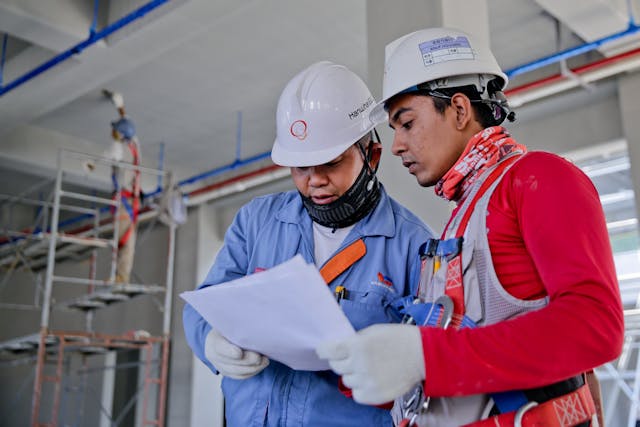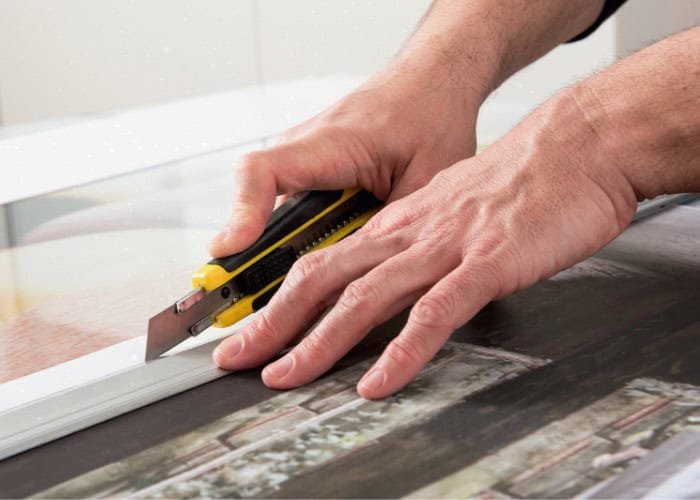Building safely starts with a card. A white card.
You might’ve seen it mentioned on job boards or heard it tossed around on site. But why is a white card certificate so crucial in the construction world? Short answer—it’s not just a piece of paper. It’s a legal requirement. And more importantly, it’s a safety promise.
If you’re based in the ACT and searching for training options, check out white card Canberra providers to find certified, up-to-date courses.
Let’s break down what the white card is, why it matters, and how it shapes careers in construction.
Table of Contents
ToggleWhat Is a White Card Certificate?
The white card is proof you’ve completed official construction safety training. Technically called the General Construction Induction Training, it’s a nationally recognised certificate in Australia.
Every worker who sets foot on a construction site needs it. It shows you understand the basics—hazard awareness, risk control, site rules, and your right to speak up.
Think of it as a driver’s licence for construction. No white card? No entry.
Legal Requirements in Australia
Here’s the deal: under Australian Work Health and Safety (WHS) laws, no one is allowed to carry out construction work without first completing this training.
Each state and territory backs this rule. It’s enforced. No exceptions. Penalties apply to both workers and employers who ignore it.
And don’t assume you can work across state lines without checking. Some regions have extra requirements. Always check local laws if you’re moving between, say, New South Wales and Western Australia.
Who Needs a White Card?
It’s easy to assume it’s just for builders and tradies. But the list is longer than most expect. You’ll need a white card if you:
- Operate machinery
- Work as a labourer or apprentice
- Are involved in demolition or site prep
- Do electrical or plumbing jobs
- Visit sites regularly as a supervisor, project manager, or safety officer
Even delivery drivers who access active sites may need one. Surprising? It catches many off guard.
What Training Does the White Card Cover?
So, what do you actually learn?
Here’s a snapshot:
- How to spot workplace hazards
- Basic emergency response
- Your rights and responsibilities under WHS laws
- Why communication matters on-site
- The role of signage, PPE, and site-specific rules
The training is practical. Real-world examples. Nothing overly academic.
Why Employers Demand It
Construction sites are high-risk zones. Injuries, accidents, and safety violations can cost thousands—or worse, lives.
Employers need assurance that everyone on site has a basic safety standard. That’s what the white card offers. It protects:
- The business from liability
- Workers from harm
- Projects from delays caused by incidents
In short, it’s risk management in action.
How to Get a White Card?
Eligibility and Documentation
You’ll need to:
- Be at least 14 years old (some providers require 16+)
- Provide valid ID (e.g., driver’s license, passport)
- Have basic English literacy
Some providers may also request proof of residency or work status.
Online vs In-Person Courses
Online courses are the go-to for most workers today. Why?
- They’re flexible—you can complete them at your own pace
- No need to travel to training centres
- Most include video content, quizzes, and live support
Still, some states (like WA) may require face-to-face training. Always confirm based on your location.
How Long It Takes and What It Costs
Most white card courses take 4 to 6 hours to complete. Fast and straightforward.
Costs vary by provider, but you’re typically looking at $100 to $200.
Pro tip: Always check if the provider is RTO-accredited (Registered Training Organisation). That’s non-negotiable.
Is It Just a Formality? The Hidden Value Behind the White Card
Some think it’s just paperwork. But there’s more to it.
The training helps you build a mindset. One that spots danger before it causes harm. One that understands why rules exist, not just how to follow them.
And for younger workers or those new to construction? It gives confidence. The kind that keeps you alert and accountable.
Why This One-Time Certification Shapes Long-Term Careers
A white card isn’t just the first step—it’s a foundation.
From your first day to your final promotion, safety is non-negotiable. And it all starts with that one course. Because when everyone understands the risks, sites run smoother. Accidents drop. And careers rise.
So if you’re planning a future in construction, don’t treat the white card as a checkbox.
Treat it as your first real tool.











